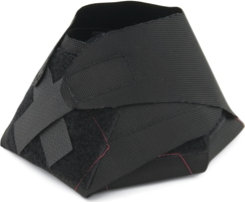It’s that time of year, early spring where most Veterinarians’ would suggest giving spring vaccinations to your horses.
I usually have my Vet come in mid April to take an annual Coggins (EIA) test, and give vaccinations against Eastern, Western and Venezuelan Equine Encephalitis; West Nile Virus; Tetanus; Rhino and Influenza. The time frame allows for the horses to build up anti-bodies and be prepared for the usually wet and humid summer with can bring vector borne diseases.
I also take advantage of her visit to grab a couple tubes of Bute and a bottle of Banamine (Fluoxomine). I would be glad to go a whole year and not use any of these products, and am glad as well to have them on hand.
Some people also vaccinate against Rabies and Strangles. Strangles is a bacterial Strep like infection that caused enlarged lymph nodes that block the airway and could suffocate a horse – hence the name Strangles. Most often swollen lymph nodes on the jaw between the lower molars are present. Sometimes an infected tooth, usually on young horses, can cause a similar symptom and fool people. Strangles is very contagious and can affect many horses that are stabled or pastured together but most horses recover without complication.
Rabies vaccination, being bitten by a rapid carrier, can fool people as well. Early symptoms can look like colic or lameness or even just a plain low grade illness or depression. Horse will invariable die from rabies which is a neurological disorder which can also be mistaken for West Nile Virus. Rabies signs can appear within 4 to 5 days, or even longer in some cases, after being bitten. Horses without a current rabies vaccine will exhibit signs a bit earlier.
I have seen one horse with West Nile Virus. It was not vaccinated against the disease and it was pitiful to watch this horse try to walk and fall down when trying to turn around. We treated the symptoms and eventually the horse pulled through and became a roping horse for a couple of teenagers. But not all horses pull through or pull through without side effects or a re-occurring symptoms throughout their life cycle.
Beware of the stables or boarding facility that does not have a mandatory vaccinations program. This is indicative of a facility that is unsafe and will cut corners in other areas as well. Bottom line is that to give your horse a fair life, get them vaccinated on a recommended timeline. It will save you a lot of heartache and give you piece of mind.
Safe Journey,…for you and your horse.



















No comments:
Post a Comment